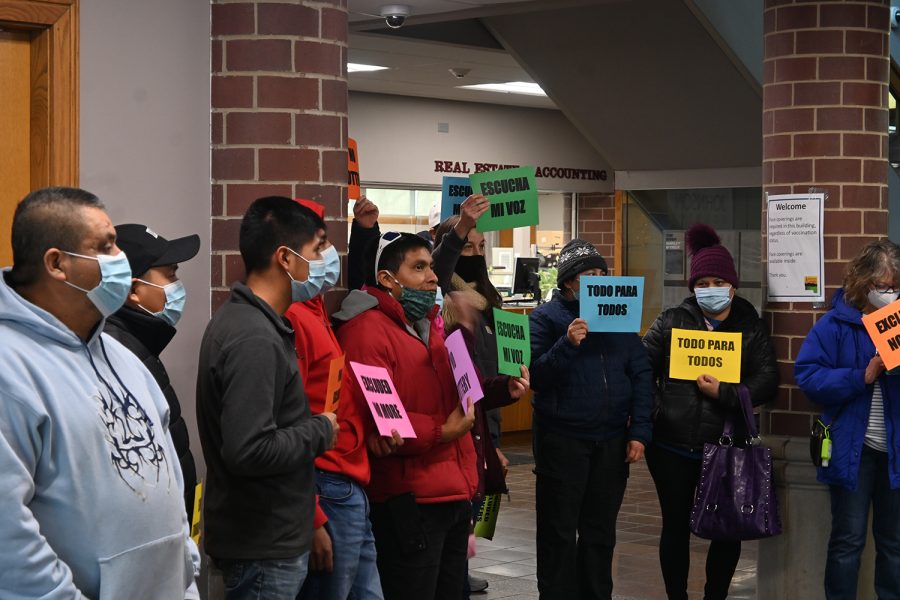A new UI program will get students out of college and into a career in science education one year early.
Students majoring in biology, chemistry, and physics will have the chance to get both a bachelor’s and master’s degree in teaching with five years of coursework — a load that would normally take students six years.
The program, which the university will launch this fall, was designed to respond to a growing need for science and math teachers both in Iowa and nationwide, said Brian Hand, a UI science-education professor.
“We have critical shortages in physics and chemistry,” he said. “We need to get teachers out [of college] as quick as possible.”
For many schools, it’s a matter of bringing in enough new teachers to replace the ones retiring, said Terry Coleman, an assistant principal at City High, 1900 Morningside Drive.
Math and science teachers throughout Iowa are retiring in record numbers, according to the Iowa Math Science Education Partnership’s 2009 annual report.
Dale Wurster, the senior associate dean of the UI Graduate College, said the program is aimed at recruiting science majors who are not sure what to do with their degrees.
“The two extra years of graduate school turn science majors away from education,” he said. “We hope that this new program encourages them to consider it.”
Lauren Pinkerton, a sophomore biology major who recently decided to pursue a career in education, said the five-year program would keep her from having to choose between changing her major or paying another year of tuition.
“Saving a year of tuition saves a lot of money,” she said.
However, Hand said, because of the nature of the courses — which combine elements of teaching and science degrees — the program is mostly available to new, incoming students.
Though the program is designed to benefit the nation’s junior and senior high schools, Coleman said, smaller or poorer school districts may not be able to hire graduates with master’s degrees.
“It could be a deterrent for an applicant because the school would not be able to pay them,” he said.
“It’s a difficult situation, but it’s also a major shortage,” he said.
Wurster said that while the five-year program is a first for the College of Education, the College of Engineering offers these “fast-track” programs in all departments.
“Overall, these kinds of programs are used to get people to consider careers where we need more people,” he said.
Other Iowa schools such as the University of Northern Iowa and Iowa State University are also developing programs to address the teacher decline.
Thad Sheldon, a City High biology teacher, said he thinks the accelerated master’s program would appeal to students, as long as the program doesn’t sacrifice any training for teachers.
“As long as the quality of classes are not sacrificed, I think it’s a good idea,” he said. “It’s a pretty sweet gig.”






